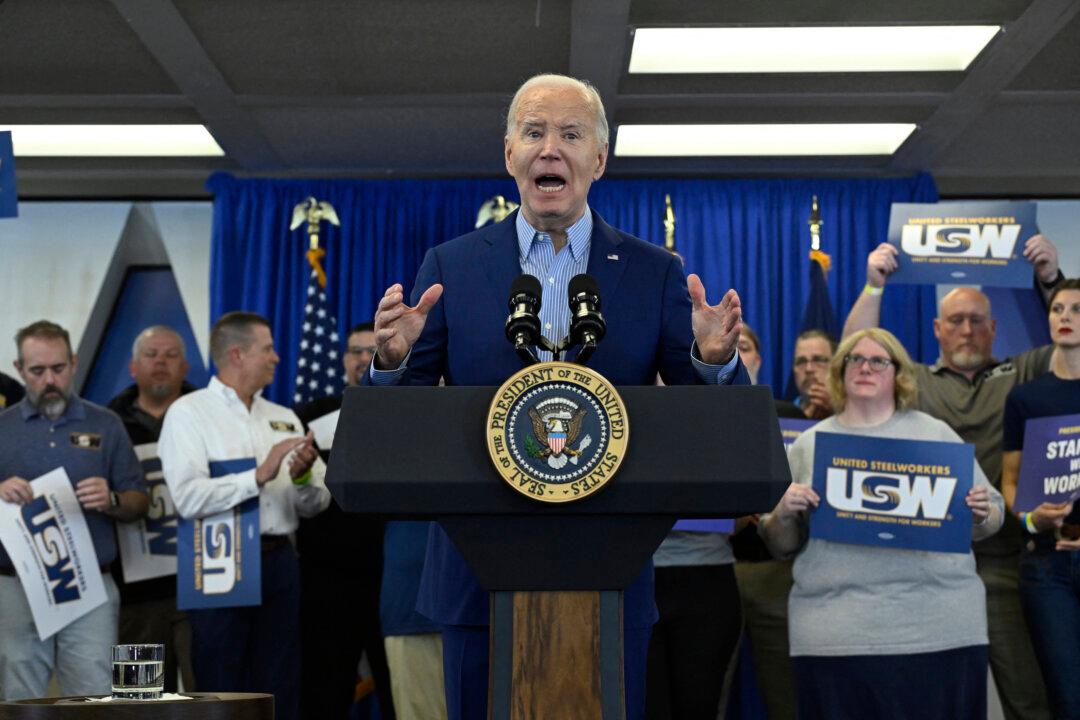PITTSBURGH—President Joe Biden on April 17 called for dramatically higher tariffs on steel and aluminum imports from China, a move likely aimed at pleasing blue-collar voters in the battleground state of Pennsylvania before the 2024 election.
The decision came after President Biden reportedly faced pressure from labor unions to extend the tariffs on Chinese goods.





